UCSF Helen Diller Family Comprehensive Cancer Center | Strategic Alliance Partners
Latest from UCSF Helen Diller Family Comprehensive Cancer Center

Determining Which DTC Patients May Benefit from Systemic Therapy
ByLori J. Wirth, MD,Francis Worden, MD,Marcia S. Brose, MD, PhD,Daniel Bowles, MD,Hyunseok Kang, MD Hyunseok Kang, MD, discusses the importance of balancing toxicities and other factors when initiating first-line treatments for patients with refractory differentiated thyroid cancer (DTC), while emphasizing the need to set clear goals and communicate potential adverse reactions before allowing patients to make informed decisions.

Targeted therapy, genomics, and treatment disparities were among the topics that were presented by researchers from UCSF at the 2024 AACR conference.

Drs Graff, Mahtani, McCann, and Rugo share moments that sparked their interest in oncology and setbacks they overcame when building their careers.

UCSF researcher to lead multicenter precision medicine trial for juvenile myelomonocytic leukemia.

Hope S. Rugo, MD, draws on her own journey as a woman in oncology to provide insights on navigating career transitions and building support networks.
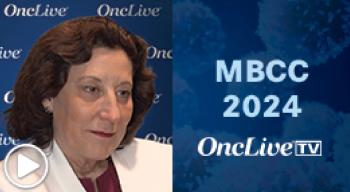
Hope Rugo, MD, discusses the evolution of antibody-drug conjugates in hormone receptor–positive, HER2-positive, and HER2-low breast cancer.
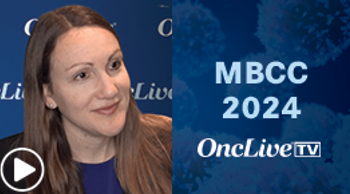
Laura A. Huppert, MD, discusses data informing the sequence of immunotherapy and chemotherapy regimens in early-stage triple-negative breast cancer.

Hope S. Rugo, MD, FASCO, shares progress made with ADCs and the interest in moving these agents up in the HR-positive/HER2-negative breast cancer paradigm.
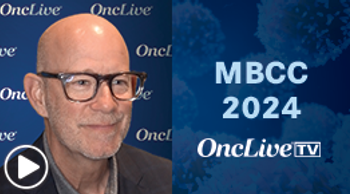
Michael D. Alvarado, MD, discusses the decision to undergo breast conservation surgery vs mastectomy following neoadjuvant breast cancer therapy.
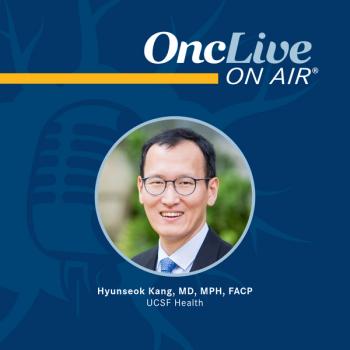
Dr Kang discusses the significance of the FDA approval of toripalimab for nasopharyngeal carcinoma and his anticipated use of the agent.
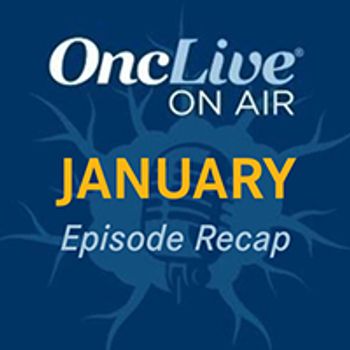
In case you missed it, read a recap of every episode of OncLive On Air recorded in January 2024.

A genetic mutation that makes cancer cells hardy can be engineered into T cells, giving them superhuman strength.

Many clinicians have reported a lack of understanding of the FDA approval process and a desire for strong premarket evidence to support these approvals.
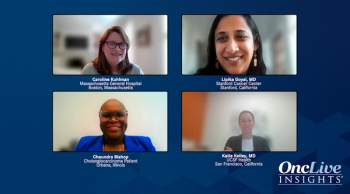
Provider and patient perspectives on why patient education about FGFRi treatment-associated adverse events and how to manage them are is essential in helping patients maintain a good quality of life and stay on treatment.

Many patients with cholangiocarcinoma being treated with FGFRi will experience stomatitis and dry mouth, but there are strategies that can help.

Experts share preventative and management strategies for nail toxicities and mouth sores that can cause significant quality of life issues for patients being treated with FGFRi.

Hyperphosphatemia is the most common AE associated with FGFRi treatments and can impact patient quality of life, but there are treatments and possible diet changes that may help mitigate this AE.

Ocular toxicities from dry eye to development of cataracts are potential risks with FGFRi treatment; providers share management strategies.
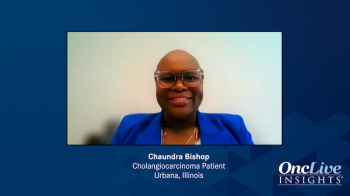
A patient with cholangiocarcinoma shares her experience while being treated with an FGFR inhibitor, as well as insights on what providers should tell their patients to help them best manage or possibly prevent these adverse events.
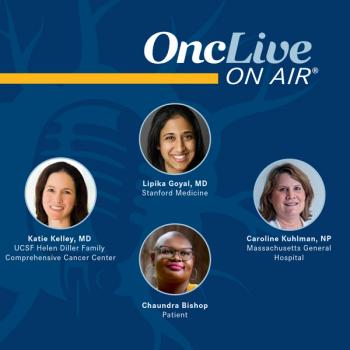
Goyal, Bishop, Kelley, and Kuhlman discuss ways to prepare patients with cholangiocarcinoma for FGFR inhibitor–related adverse effects.

A review of how frequently adverse events from hyperphosphatemia to nail toxicities to stomatitis and more.

Provider perspectives on the importance of education patients about potential adverse events they may experience when initiating treatment with FGFR inhibitors.

A national survey conducted by UCSF researchers reveals that many physicians are unfamiliar with how the FDA regulates new drugs and medical devices.

Next-generation FGFR inhibitors show promise in early trials evaluating their efficacy and safety for the treatment of cholangiocarcinoma.

Experts discuss treatment options for cholangiocarinoma and how FGFR inhibitors have changed the treatment landscape in recent years.

Experts in treating cholangiocarcinoma share insights on when biomarker testing is needed and which biomarkers to test for.

Key opinion leaders illustrate how patients with intrahepatic cholangiocarcinoma present in a clinical setting.

The intricate web of risk factors influencing diverse forms of liver cancers are explored.

Thomas G. Martin, MD, has received a grant from the California Institute of Regenerative Medicine to produce a CAR T cell therapy for multiple myeloma.

The American Society of Clinical Oncology has elected Eric J. Small, MD, FASCO, to serve as its president for the term beginning in June 2025.


















